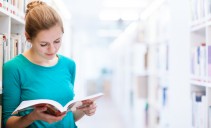In recent years, online degree programs have proven to be a popular educational pathway for college and university students nationwide. The National Center for Education Statistics (NCES) reports that in fall 2013, roughly 2.66 million postsecondary students enrolled in fully online academic programs, and another 2.86 million took part in “blended” schedules that incorporate both online and classroom-based coursework. While brick-and-mortar continues to be the most common degree pathway (14.85 million students in 2013), those enrolled in online and blended programs comprise more than a quarter of the country’s college student population.
The online pathway offers several advantages. Most program schedules are asynchronous, allowing students the flexibility to submit assignments and complete exams on their own time. Distance learning also enables individuals to study from home, rather than commuting to and from campus every day. This convenient format is especially beneficial to students with other commitments, such as full-time employees or parents with young children. However, studying from home also may also carry one particular disadvantage: lack of access to a university library.
Libraries offer academic resources for college students at all degree levels, as well as a quiet venue conducive to productive studying. In lieu of an on-campus facility, online students are encouraged to take advantage of the nearest branch of their local library system. This guide will explore all of the procedures needed to enroll in a library system, access various library resources, and check out materials for take-home use.
Let’s begin with the crucial first step: obtaining a library card.
How to Get a Library Card
All public library systems adhere to a different set of guidelines for patrons. To make things a little simpler, we’ll be using the Seattle Public Library (SPL) system as our primary reference point throughout the guide. However, much of the information will apply to any library system across the country.
The SPL system offers membership and free service to anyone who owns property or lives within the greater Seattle area. Students who attend school within the SPL system also qualify for free library services, including online learners enrolled at institutions in Seattle or the surrounding area. Other systems may be more strict and only offer free membership to those who can prove residence within the city. These systems typically offer non-resident memberships for quarterly or annual fees with no limitations on services.
Required materials to obtain a library card are similar across the country. In order to obtain a free library card, prospective patrons must present the following documents at any SPL branch:
- Current library card, if available (from any local branch)
- Driver’s license, passport, ID card, or other valid form of identification
- Copy of current lease agreement, physical mail, or other proof of address within the SPL system (if this information is not listed on ID)
Seattle residents can also apply online for a free library card in the SPL system. Web applicants must be 13 years of age or older. They must also own/rent property or attend school within the free service area. Online applicants choose a four-digit personal identification number (PIN) in order to protect the personal information included on the application. Members can log in to their account online using their library card number and PIN. Account-holders may also choose a username that will be used to place holds, renew checked-out items, and rate titles. This process is similar across other library systems in the US. In order to ensure you’re ready to get your card, check your local library’s website before applying.
Thanks to a reciprocal agreement, SPL cardholders may check out books at any branch of the King County Library System. Additionally, anyone with a SPL card may obtain a free card from any branch of the following library systems in surrounding areas (limitations in service vary):
- Everett Public Library
- Kitsap Regional Library System
- Puyallup Public Library
- Pierce County Library System
- Sno-Isle Regional Library
- Timberland Regional Library
There are alternative options for patrons who do not qualify for the free SPL card. A visitor card is available for temporary Seattle residents that do not own or lease property in the area. A visitor card costs $25, and will be valid for three months; cardholders may check out up to five items at a time. Non-resident cards are also available to individuals who live in Washington but do not qualify for the free card. Non-resident cards cost $85, and are valid for one year. Prices for non-resident cards vary across systems, and many offer different durations of service and renewal dates. Nonetheless, most systems do offer alternatives to their free cards.
SPL members may also utilize the system’s mobile app to log in to their account, locate library branches, and browse the SPL catalog for books, magazines, and multimedia available for checkout. Library card-holders can also use the app to access their account barcode and check out materials at physical locations. Additional app resources include a library events calendar and downloadable author podcasts. The SPL mobile app is compatible with iPhone, Android, Windows Mobile, Blackberry, Palm, Symbian, and J2ME devices.
Librarian Interview
Meet Emily Lynch, Librarian at Seattle Public Library
 Emily Lynch is a librarian at the Seattle Public Library with years of experience serving patrons of all ages, including online college students.
Emily Lynch is a librarian at the Seattle Public Library with years of experience serving patrons of all ages, including online college students.
Do many college students come to the library for help with their homework or research? If not many, why do you think they don’t?
We definitely get some homework and research questions from college students, but it would be great to get more! I’ve fielded questions from students about all sorts of topics. Often, they ask about magazine resources and databases, or they work with Special Collections, especially when doing local research.
However, I think many students don’t know we’re here waiting for their questions, or are maybe shy about bothering us. Don’t be shy – librarians live for interesting questions from you!
Do students email or call with questions about their homework or research? Which would you recommend for a more in-depth response?
Calls and emails are both great ways to get questions answered. And don’t forget online chat! Many libraries these days provide chat service 24/7.
Email is a great way to get an in-depth response, since it gives us librarians a bit more time to dig deeper. However, phone calls and chat are great because then we can ask you clarifying questions and really help you hone in on your research question. Often, if we need to go deeper, we will follow up on a phone call or chat with email as well. So really – use whatever communication format you feel most comfortable with!
Also, if you start with email, don’t forget that you can email back and forth with the librarian to help them understand your question better. We love getting feedback, and going back and forth a few times really helps us get you the best information.
What kinds of questions do they ask? Are you generally able to help them?
We definitely get all manner of questions from students. A few favorites that I can remember are:
- Do you have any original source documents about the local history of Tukwila (a town outside Seattle)?
- Can you help me find academic articles about the role of women in action films?
- What do you have to help me prepare for nursing exams?
We are generally able to provide some assistance to students. Their questions are the jumpoff point for our own research process. Things we’ll need to know to offer the best help include:
- What is the topic?
- How long is the research paper?
- What kind of resources are available out there that they’re already aware of?
- Are the resources needed in print, or can they be online?
What happens if a librarian is unable to answer a question?
If the first librarian you talk with is unable to answer a question, they will usually send your question on to another librarian who is able to answer your question. At The Seattle Public Library, we have librarians who specialize in every subject under the sun – music, art, maps, Seattle history, business, medicine, and so on. Depending on the question, we might even make a referral to a specialized outside library or a government sector that oversees relevant products or services.
What kinds of resources are available to college students that they might not be aware of?
There are probably lots of resources online college students might not be aware of at the library. Fun and interesting online resources offered by SPL include streaming movies, music, and downloadable audiobooks for study break time. We also have chat reference, which is great for students who don’t want to come to a branch in person and want a quick answer. The New York Times is available in its entirety from 1851 – 2005 online through SPL’s website, as is the Seattle Times from 1895 – present.
In person, we have quiet places to study, private study rooms (some of which can be reserved ahead of time), research assistance by librarians, as well as adult education tutoring. There’s also a ton of newspapers on microfilm at Central, which can be useful for research projects. We also offer resume and cover letter help if you’re job hunting, which is great for recent college grads.
Remote Resources
Next, we’ll explore some of the digital resources available to library card-holders through the online network. Students enrolled in distance-learning programs can utilize these materials in order to prepare for exams, research writing assignments, and build academic skills.
Not all systems will feature the same resources as SPL, but there will likely be at least some overlap or similarity in offerings, especially in terms of e-book and audiobook availability.
SPL members can use the website to download various digital materials. OverDrive software allows users to read e-books in a web browser format; e-books are also available for Kindle, Nook, iPad,and other tablet devices. Audiobooks in the MP3 format may be downloaded for desktops, smartphones, and tablet devices. Both e-books and audiobooks are available on a check-out basis. SPL members may check out up to 25 books for three weeks at a time, and may be required to place a hold on popular titles. E-books and audiobooks will disappear from the user’s desktop or device after the three-week checkout period is finished, eliminating the need for late fees. Additionally, music, and video files are available to download or in an online streaming format on the SPL site.
Like other public library systems, SPL also offers an extensive online database of newspapers, magazines, academic journals, encyclopedias, and other reference resources. SPL’s search aggregator allows users to browse reference materials by publication format, such as ‘Magazines & Newspapers’ or ‘Dictionaries, Encyclopedias & Quotations’. Users may also confine their search to 20 different categories, including ‘Education’, ‘Government’, ‘Local History’, and ‘Social Services.’
The SPL system utilizes more than 60 different reference and research services. Many are common across US library systems; ProQuest is particularly prolific. Resources include:
- ProQuest: A comprehensive aggregator of local, national, and international newspapers.
- Health & Wellness Resource Center: A database of more than 900 health and medical journals and reference books.
- NoveList: A comprehensive collection of book reviews, awards, lists, and articles for readers of all ages.
- HeritageQuest Online: A digital database of genealogical records.
- Science Resource Center: A guide to scientific reference book titles, periodicals, photographs, and illustrations.
SPL card-holders also gain access to a host of online tutorials and training modules designed to introduce and improve various computer skills. As one of the most valuable resources public libraries provide to online college students, make sure to ask your local librarian or search your system’s website for online tutorials available to you. The SPL website, for example, features links to the following educational programs:
Lynda.com – This site offers more than 1,900 instructional videos covering different skills related to computing and software, including business, web design, multimedia, and programming. An SPL library card number and PIN are required to access this site.
Microsoft Imagine Academy – Online tutorials from Microsoft cover basic computing skills and different Microsoft software programs, such as MS Office, Dynamics, Exchange Server, SQL Server, and Visual Studio Windows Client. SPL card-holders must create a Microsoft account in order to access these sessions.
Microsoft Office Training – These online tutorials are dedicated to the various components of Microsoft Office 2016, including Word, Excel, PowerPoint, SharePoint, Outlook, Access, and Skype for Business. These courses are free, and users can access sessions without an SPL card or a Microsoft account.
Safari Books Online – This program helps users improve business and computing skills with a database of more than 2,000 digital books about programming, web design, and other tech-related areas. An SPL library card number and PIN are required to access Safari Books Online.
Additional tutorials on the SPL website introduce users to basic computing skills and concepts. OnGuard Online offers a comprehensive guide to Internet safety and security using tips from federal government officials and tech industry leaders; key areas of discussion include methods for securing wireless connections, avoiding and reporting Internet fraud, and safeguarding children from online predators. Mouse Exercises and Mousing Around Tutorial offer interactive tutorials aimed at beginning mouse users, while Dance Mat Typing and Peter’s Online Typing Course are geared toward users with limited typing experience.
Some entries in the SPL system’s ‘Special Collections‘ are available in a digitized format, as well. These materials include maps, historic documents, photographs, news publications, and vintage postcards.
Online librarian assistance is available for distance learners and other library card-holders who cannot physically travel to branch locations. This is common across all US library systems and is gaining popularity among students since it doesn’t require leaving home.
‘Ask a Librarian‘ sessions allow users to submit questions/concerns and then chat with SPL employees via instant message; mobile app users may also access this service. Online users can also submit questions to SPL librarians via email. All public library systems generally offer email reference assistance, and it often allows librarians more time to fully address patrons’ questions. Students shouldn’t be afraid to email their local librarians with tough research questions–librarians know their resources front to back, and can offer more thorough answers than students might be able to find on their own.
Additionally, digital ‘Homework Help‘ sessions and study guides are available for children and teens, while adult learners can access information about online courses in different subjects.
In-Person Library Resources
In addition to online resources, public libraries offer a wealth of services for in-person visitors. Central branch locations generally carry the bulk of a library system’s reference resources, and usually serve as the home base for librarians who specialize in business, technology, humanities, and other reference areas. Central branches often feature special collections and exhibits, as well. Neighborhood branches may carry a more limited selection of reference materials, but these locations still offer extensive book and media collections, computers with Internet access, classes, and quiet study space.
Most resources will be accessible online, but access to some will require an in-person visit to a library branch location. Some encyclopedias, dictionaries, and other reference materials are not available in a digitized format. Visitors will be able to access these resources for on-site studying and note-taking; please note that library facilities often do not allow members to check out reference materials, even with a valid library card. This is a common practice across public library systems, so it’s safe to assume students will not be able to check out reference materials regardless of their branch location.
Some resources for business owners and other professionals are only offered at SPL branch locations. Similar resources offered across systems will vary, so check your local branch website to learn more. SPL’s specific in-house resources include:
- Kroll BondRatings Quarterly Financial Institution Ratings: A free service offering up-to-date ratings on banks, savings and loans, credit unions, and other financial institutions.
- Foundation Directory Online: A comprehensive database for grant-seeking and/or fundraising organizations that features more than 100,000 grant providers. This service is only available at SPL’s Central branch location.
- Foundation Grants to Individuals Online: Similar to the Foundation Directory Online, this service offers a comprehensive database of fundraising opportunities for artists, writers, researchers, and other grant-seeking individuals. This service is also only available at the SPL Central branch.
- GrantStation: An interactive database of private foundations, religious groups, and other organizations that currently receive grant proposals.
- Puget Sound Business Journal and Book of Lists: Library visitors may access PSBJ archives for articles, organizational profiles, and rankings of local businesses.
Other resources exclusively available to on-site SPL location visitors include the following:
- ALLDATA: A comprehensive, up-to-date diagnostic guide for foreign and domestic automobiles manufactured since 1982.
- WOIS/The Career Information System: A database with current information on employment opportunities, salaries, continuing education courses for professionals, and other career tools for workers in Washington State.
- Ancestry Library Edition: A genealogical database that features U.S. and Canada census records, the Washington State Death Index (1940-96), and the Social Security Death Index.
Some SPL services, just like those available through other US systems, require on-site library visits. If a cardholder is unable to locate a certain title within their system, he or she may request an Interlibrary Loan (ILL). This service exclusively covers books, audio books, musical scores, journals, and newspapers; e-books, DVDs, music, newly published titles (within the last 12 months), and items already owned by the SPL system are not available through ILL. Users will be assessed a $5 fee for each title acquired from another library network using an ILL; a $1 late fee will incur for each day past the due date, up to $15. SPL accepts cash, check, or online payments for all ILL requests; ILL items must be picked up in-person at a branch location.
If students have used academic or college libraries in the past, this service should be familiar to them. It’s available across public library systems in the US and students should take advantage of it, especially for tough research projects requiring nonstandard sources.
SPL also allows users to make online photocopy requests for library materials. This service is free for card-holders, although materials must be picked up at branch locations and a $5 ILL fee will be assessed for items that are not currently in the SPL system. Copyright law restrictions may affect how much of the requested material is able to be photocopied. Online users may additionally submit purchase requests for books, music scores, audiobooks, and multimedia to the SPL system. If SPL agrees to acquire that item, then a hold will automatically be placed on behalf of the card-holder; this process generally takes two to three weeks, although request submitters will not be notified if the library decides not to acquire the item.
Classes designed to advance or supplement adult learning are offered at public libraries across systems and are worth looking into regardless of location. ESL students, disabled students, and students in need of computer help will all benefit from these offerings. A wide range of free on-site classes are available through SPL; most of these events are held at the Central branch, although some take place at other SPL locations. Current course offerings at SPL facilities include the following:
- Beginning, intermediate, and advanced language training classes.
- Open labs designed to help adults and children to improve computer skills.
- Specialized tech tutorials focused on software programs like MS Office, Photoshop, and Adobe InDesign.
- Citizenship and ESL sessions for immigrants and beginning English learners.
- Assistive software training sessions for disabled individuals.
Other on-site offerings at SPL branch locations include one-on-one tech training sessions, tax-related advice, guest lectures and readings, and book clubs. A full events calendar for all branch locations is available on the SPL website.
Computers are available for members to use at library locations. All branches offer computers with Internet access that are equipped with MS Office and Adobe multimedia software; these machines can be used to view library online catalogs and databases. The Central branch also features two computers with image-editing software and flatbed scanning software, as well as a Teletypewriter (TTY) for deaf users and private Skype rooms. Additionally, Wi-Fi s is available at all locations for visitors with laptops, smartphones, and other portable devices. Card-holders may reserve computers ahead of in-person branch visits.
Computer access has quickly become one of the most important services provided by public libraries, which online students can take advantage of at their local branches. Often, computer usage is timed and limited, so check the policy of your local system. Additionally, though printing is offered across systems in the US, some libraries require patrons pay a fee per page while others allow a specified amount of pages for free.
SPL facilities strive to accommodate every visitor by offering adaptive equipment and software to patrons with sight, hearing, or mobility impairments. ZoomText magnifying software and JAWS reading software are accessible on computers at all SPL branches. Hand-held and desktop magnifiers with lights are available at the Central branch for patrons with impaired vision. Wheelchair-accessible computers can also be found at the Central location.
Visitors may use printers and photocopiers at all SPL locations, as well as fax services at select branches. Printing fees are $.15 per black-and-white page and $.50 per color page; users may pay with cash, credit card, or PayPal. Photocopiers at all locations can make single- or double-sided copies in black-and-white or color for 8.5″ x 11″ and 8.5″ x 14″ documents; select branches also allow users to make copies of 11″ x 17″ documents. Copy fees vary by type and size. Fax services charge $1 for the first page and $.50 for each additional page, with no fee for the cover sheet. Please note that some library systems offer some or all of these services free-of-charge for library card-holders. Fax services are especially limited across branches, so call ahead before visiting a library if you need to fax documents.
Most libraries and all SPL locations have conference rooms available for business meetings, seminars, and other private events. Additionally, the Central branch of SPL offers the following accommodations:
- Microsoft Auditorium: A lecture hall with 375 fixed and overflow seating accommodations.
- Boeing Technology Training Center: A fully functional computer lab with 25 machines and audio/video conferencing capabilities.
- Norcliffe Foundation Living Room: A casual reading room with couches and a coffee cart.
- Betty Jane Narver Reading Room: A casual reading area located on the 10th floor.



